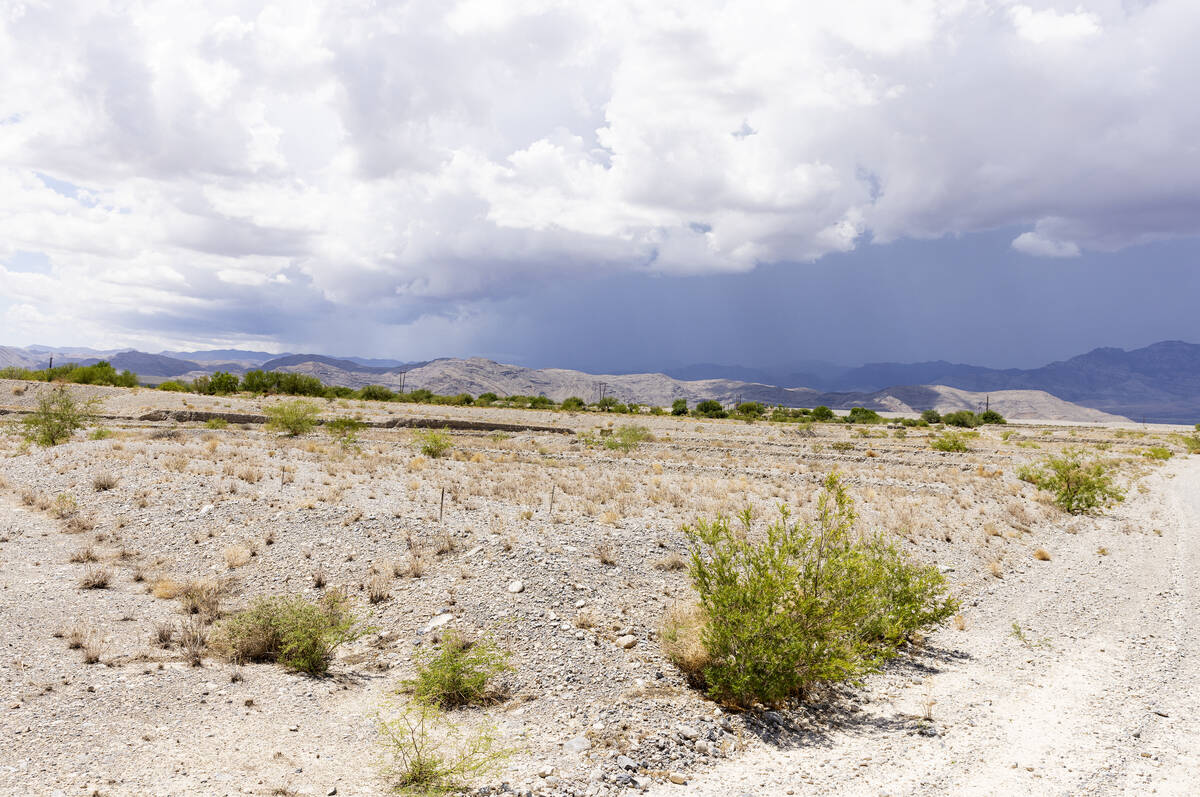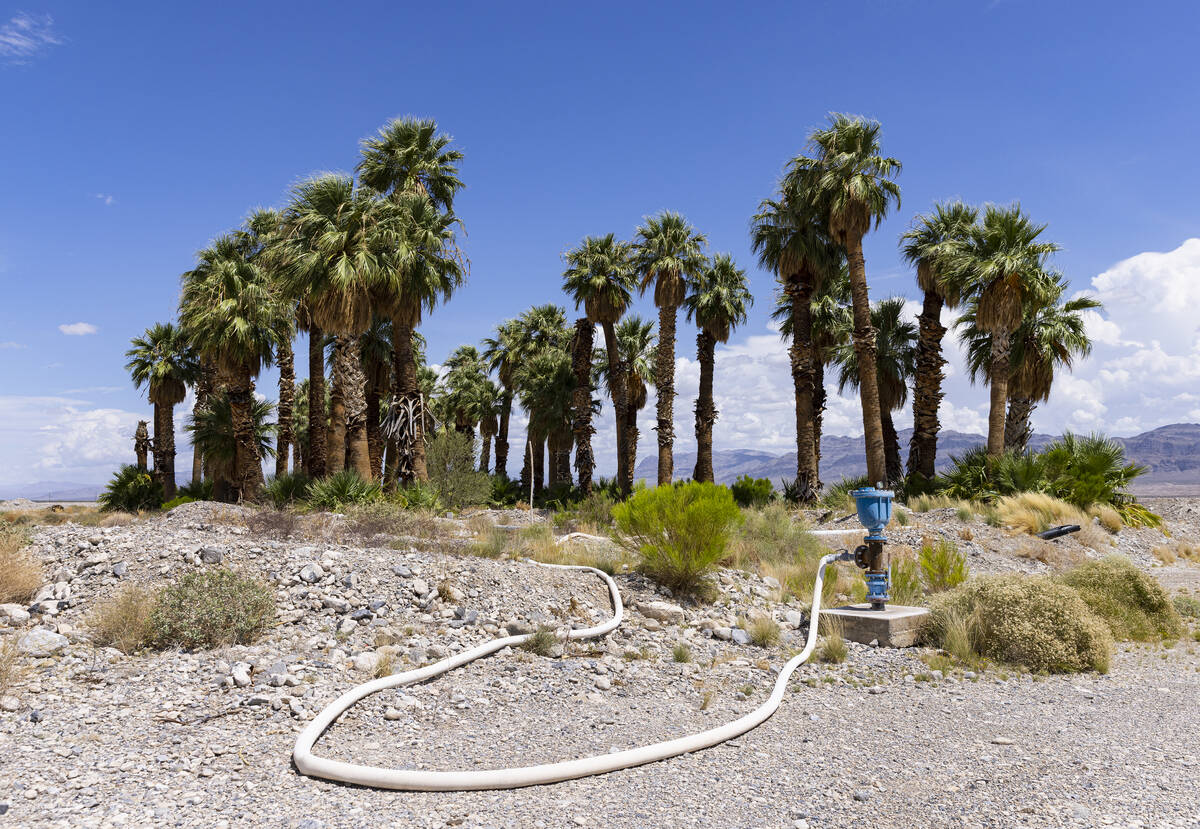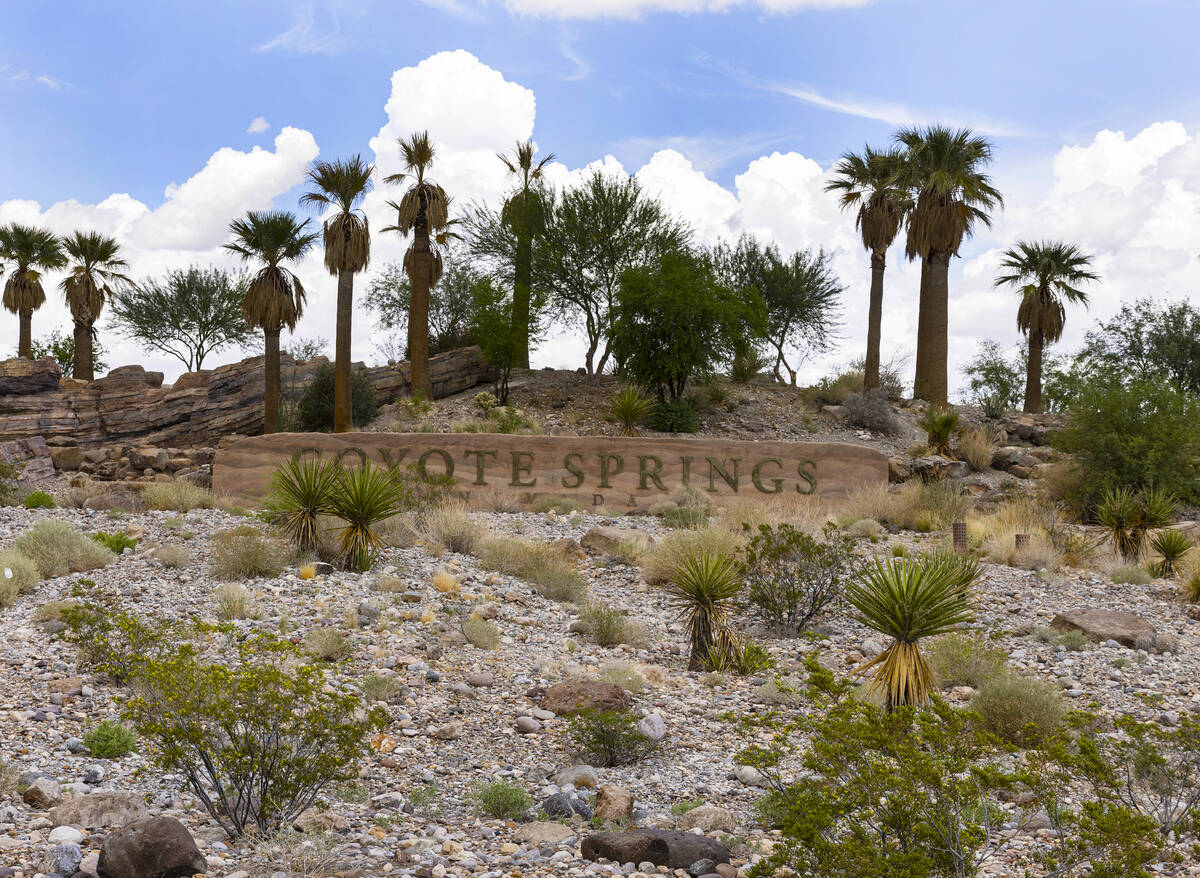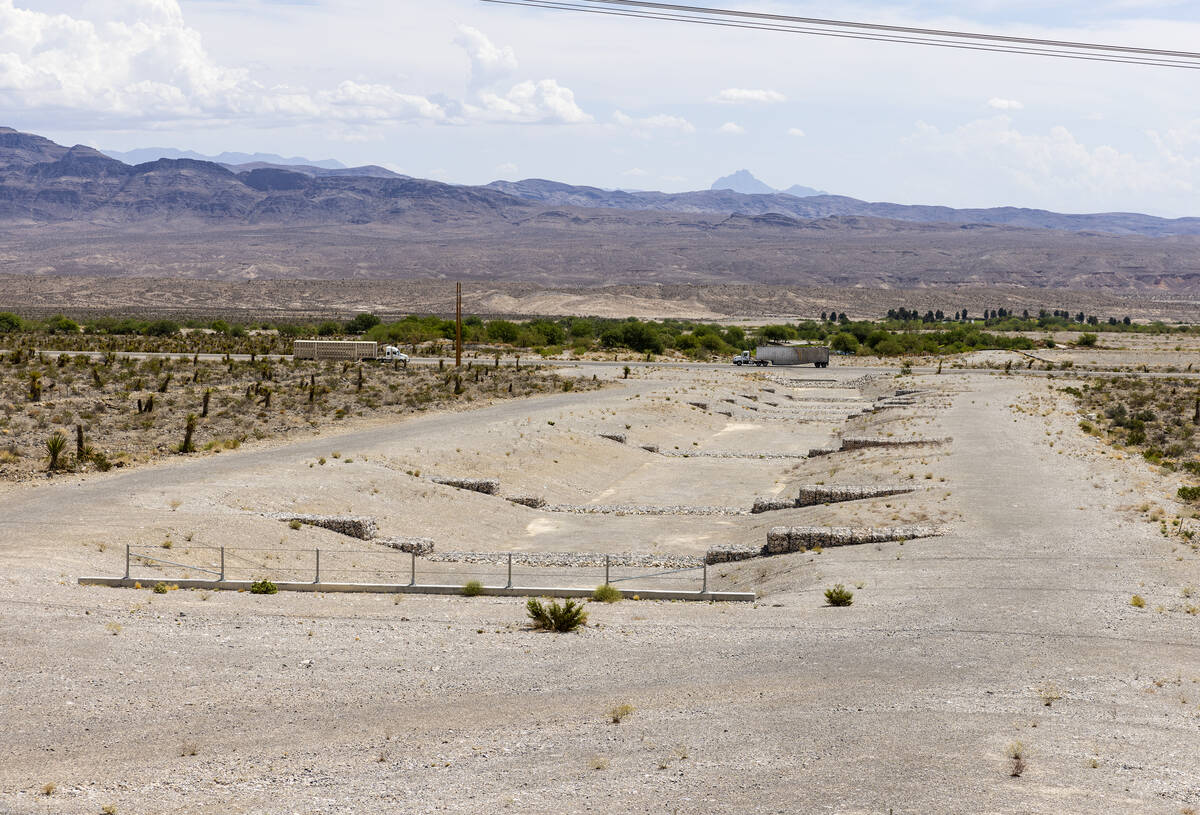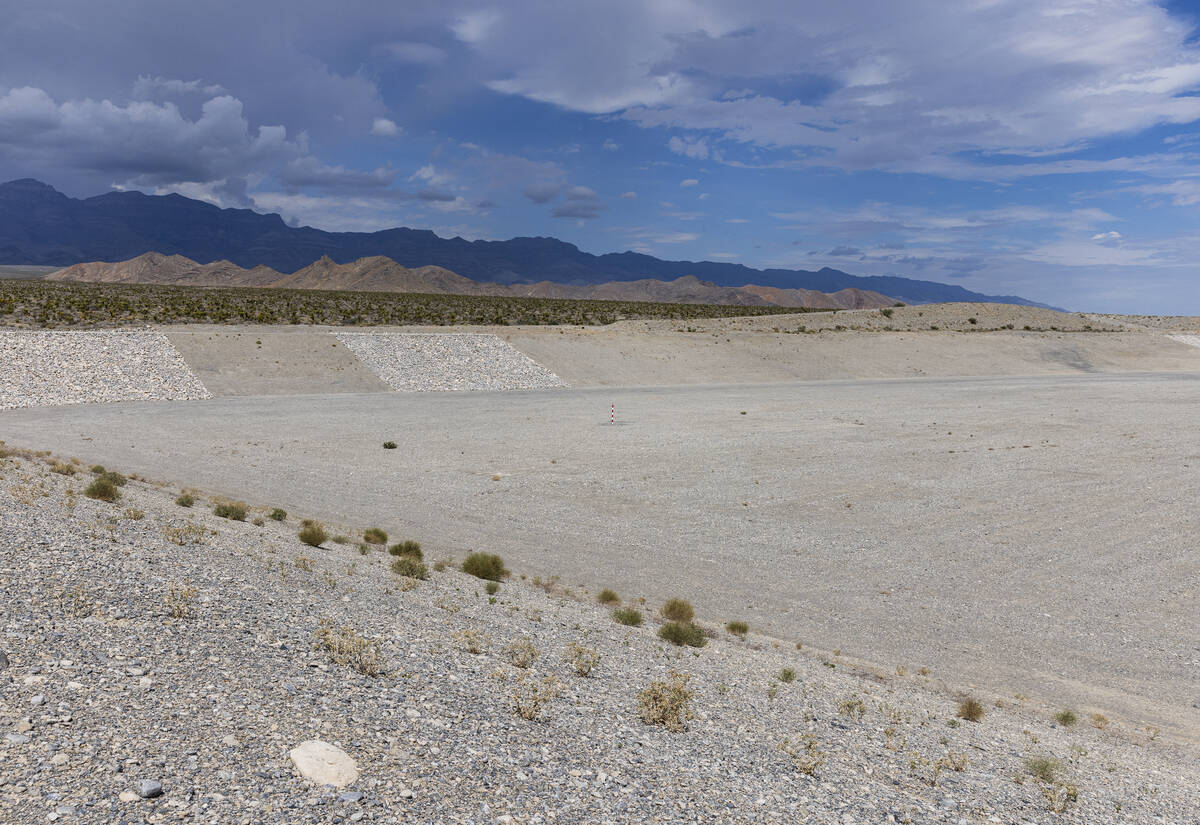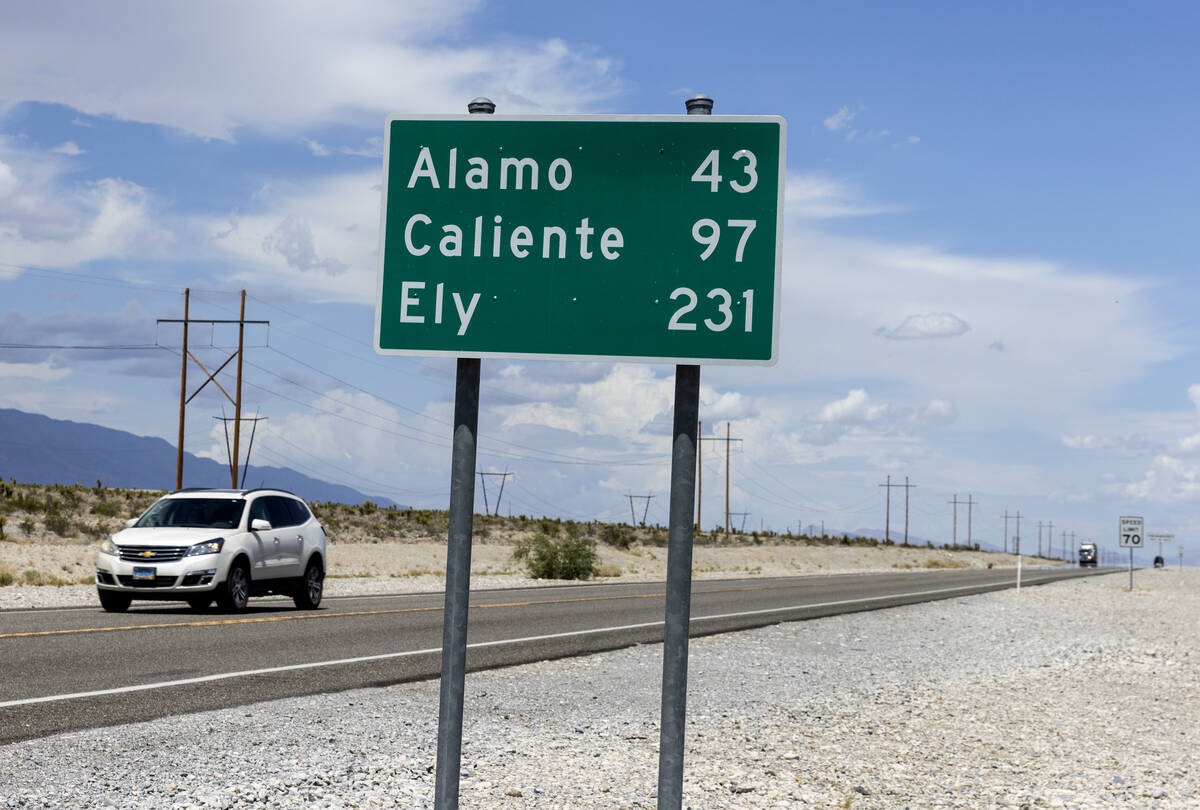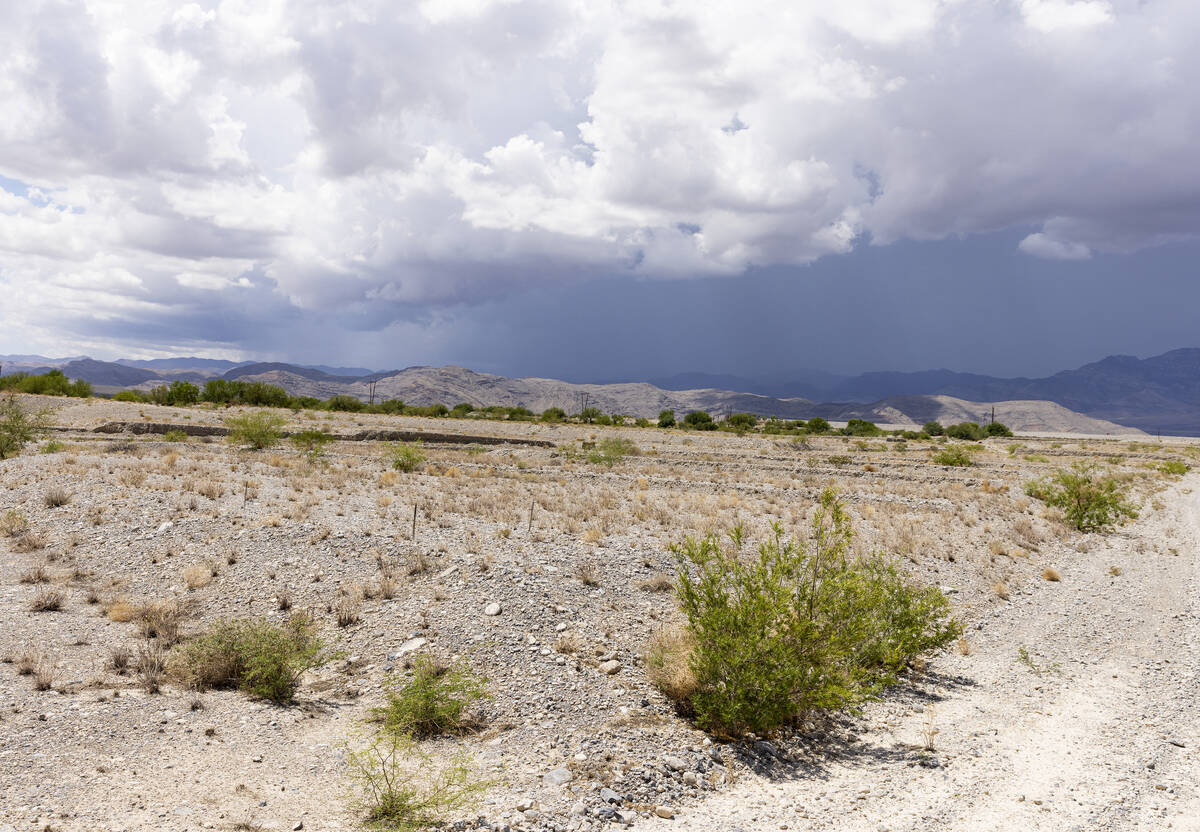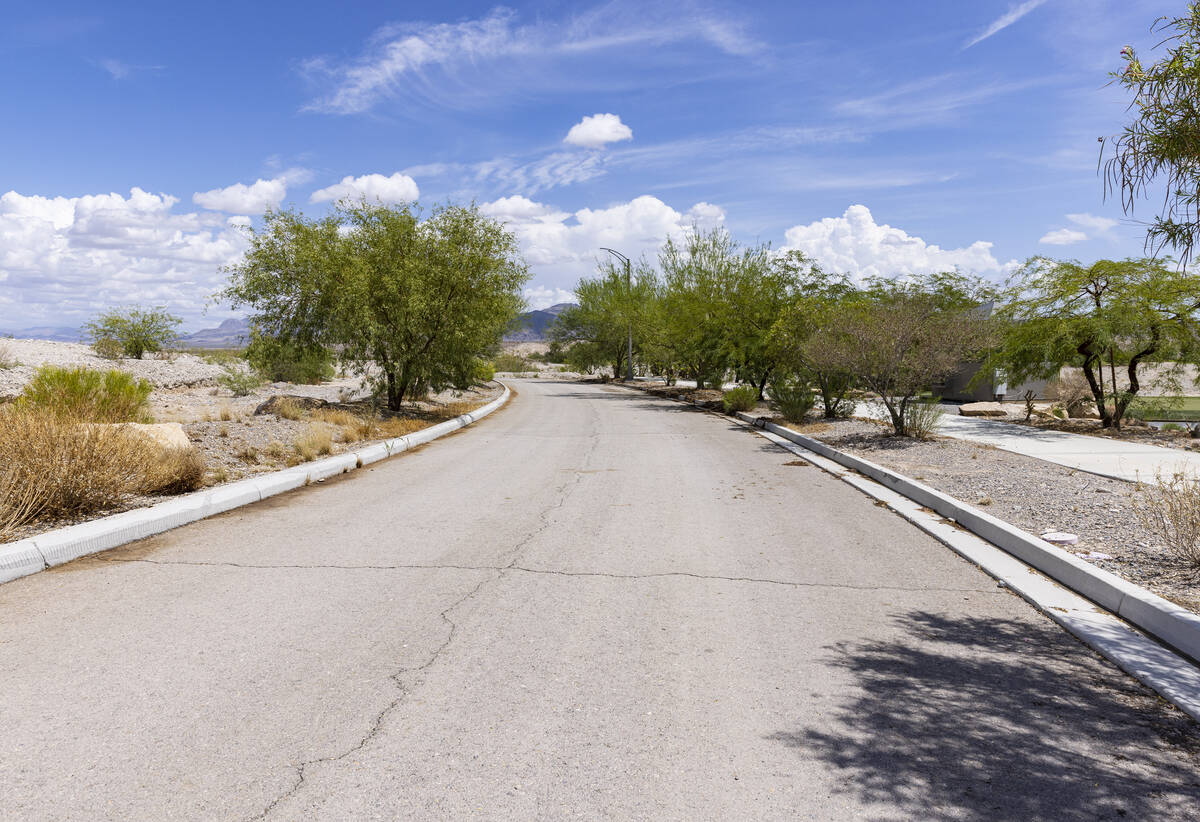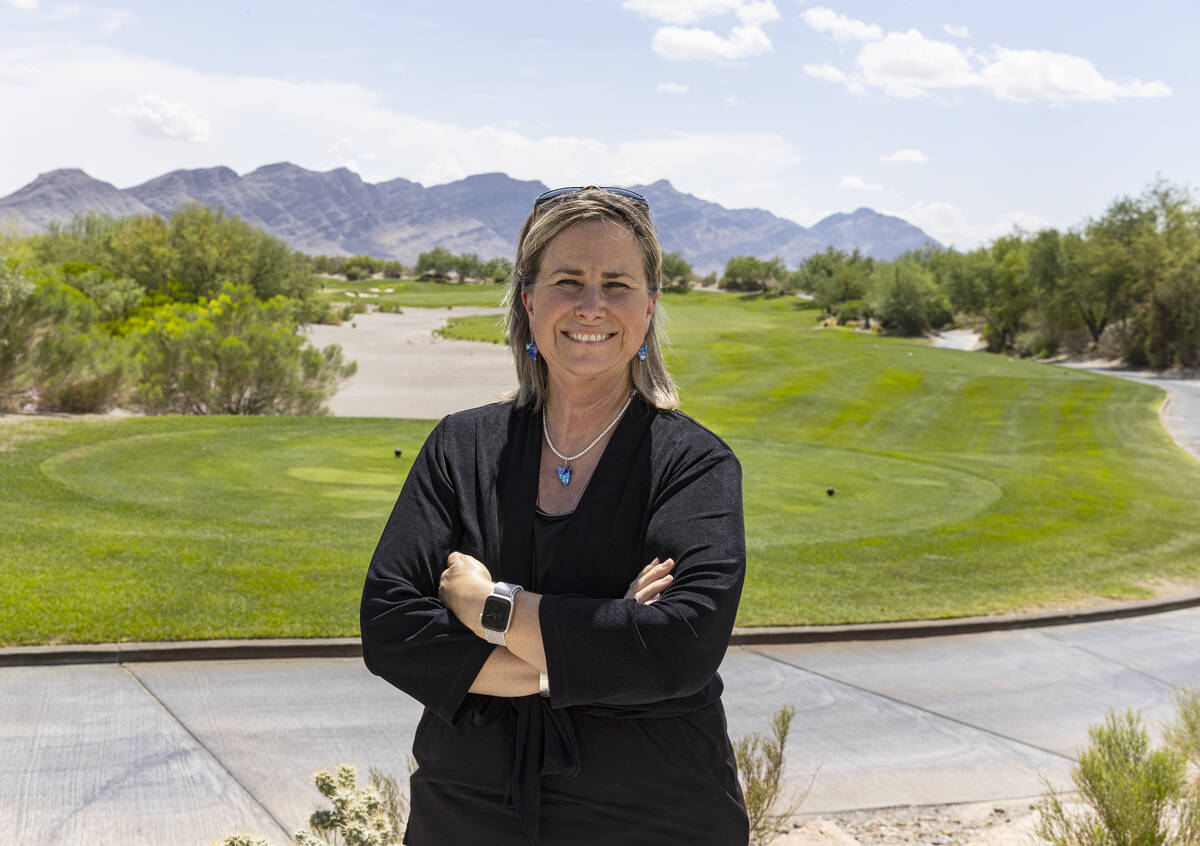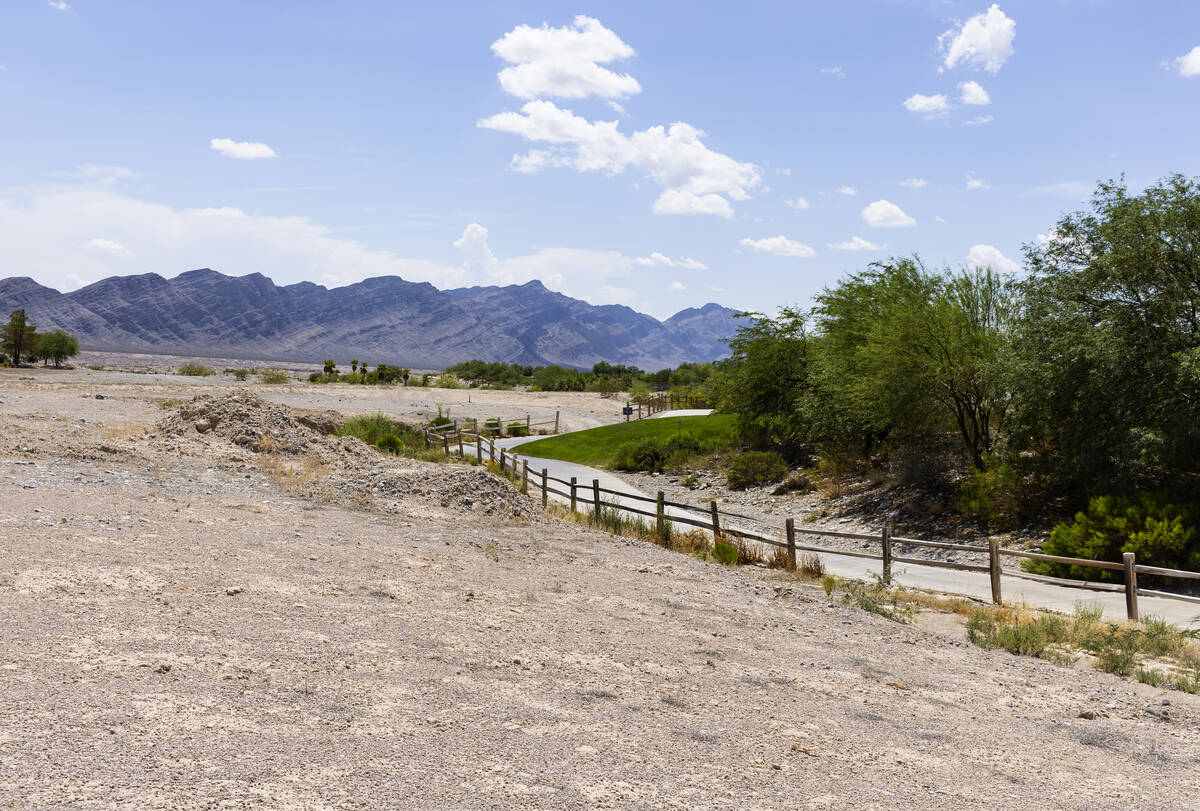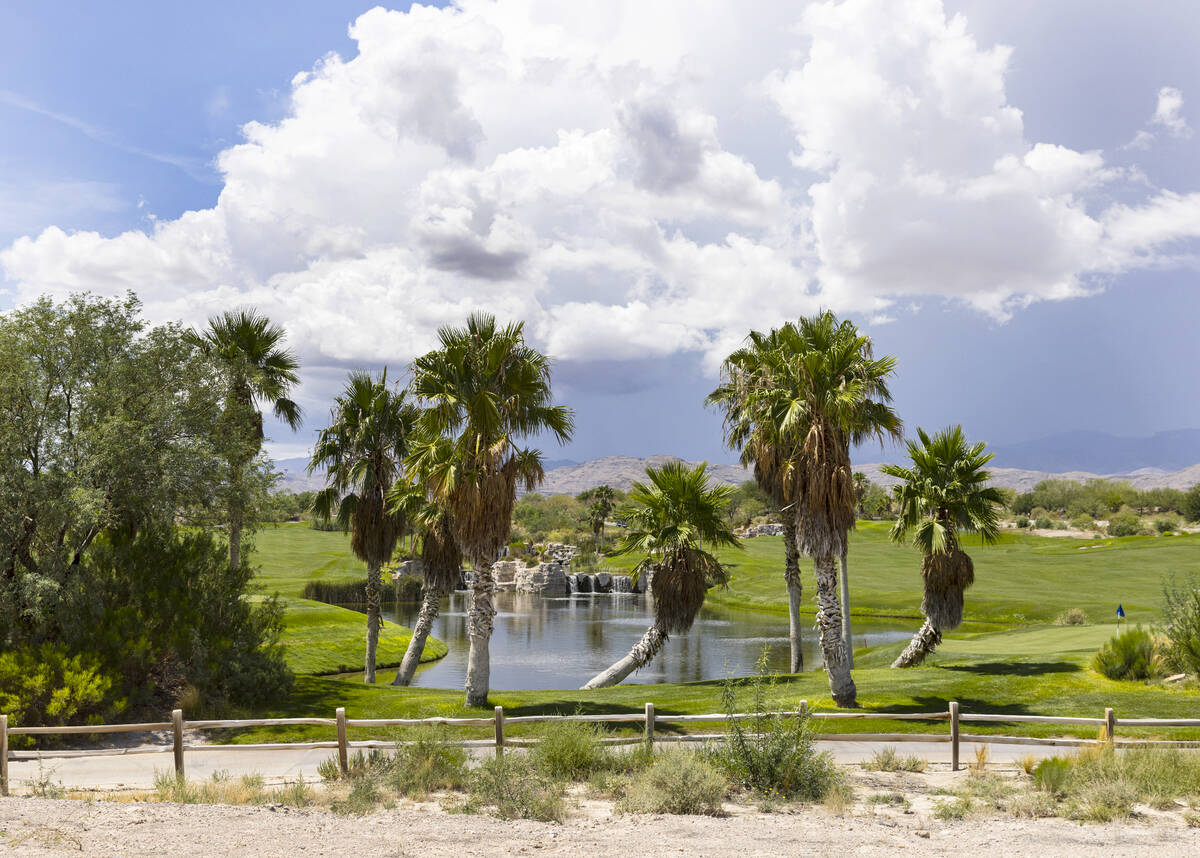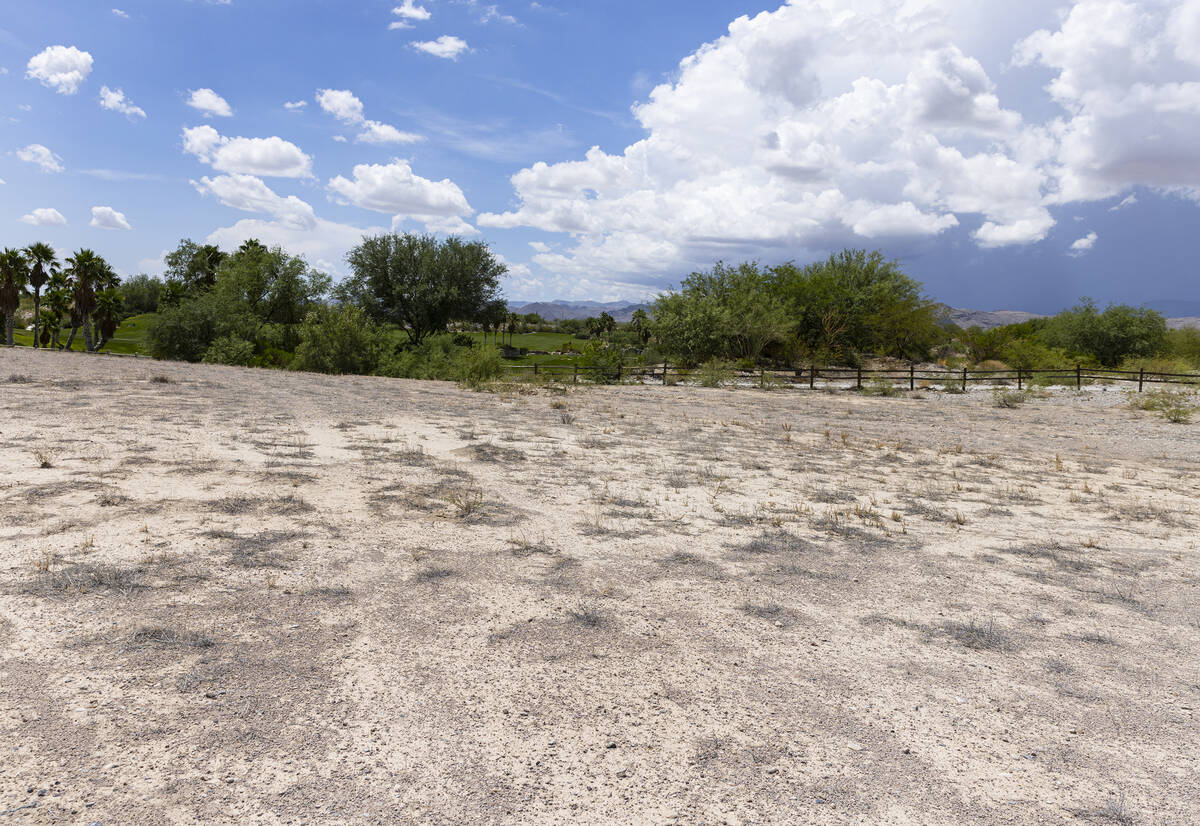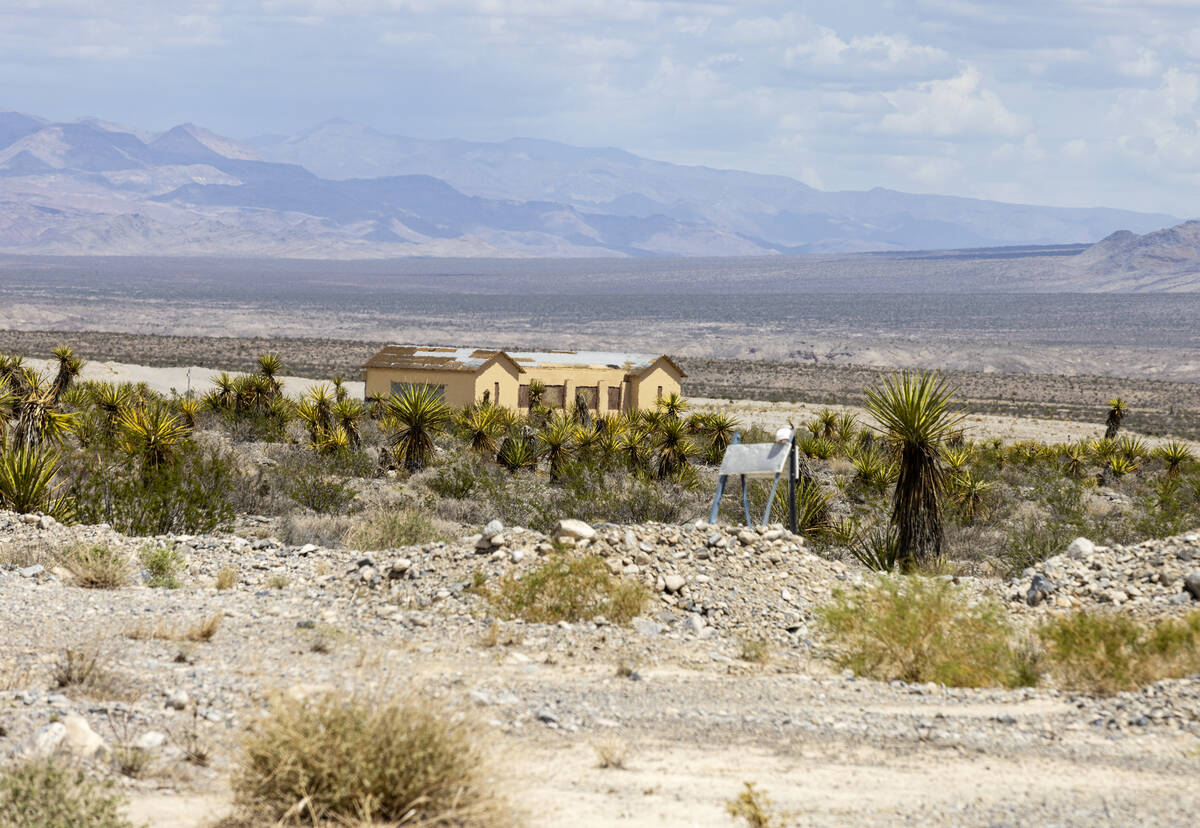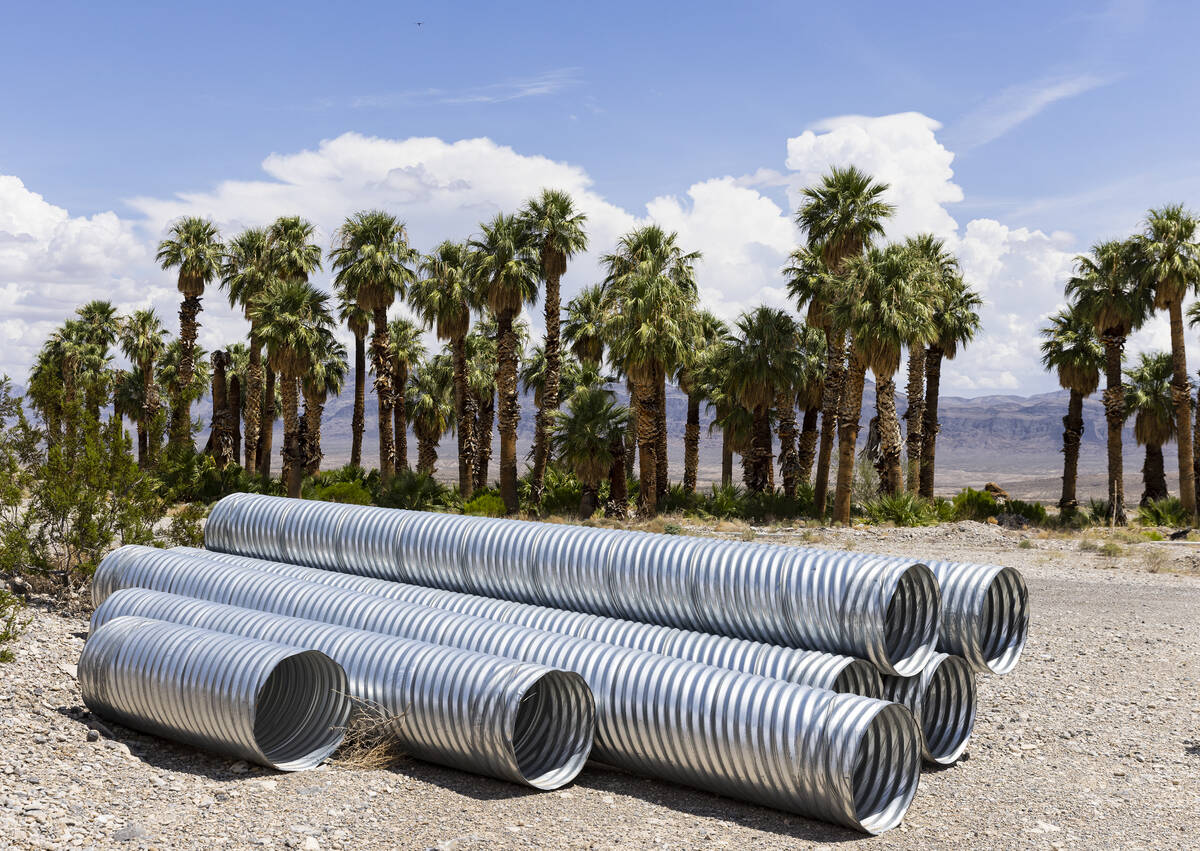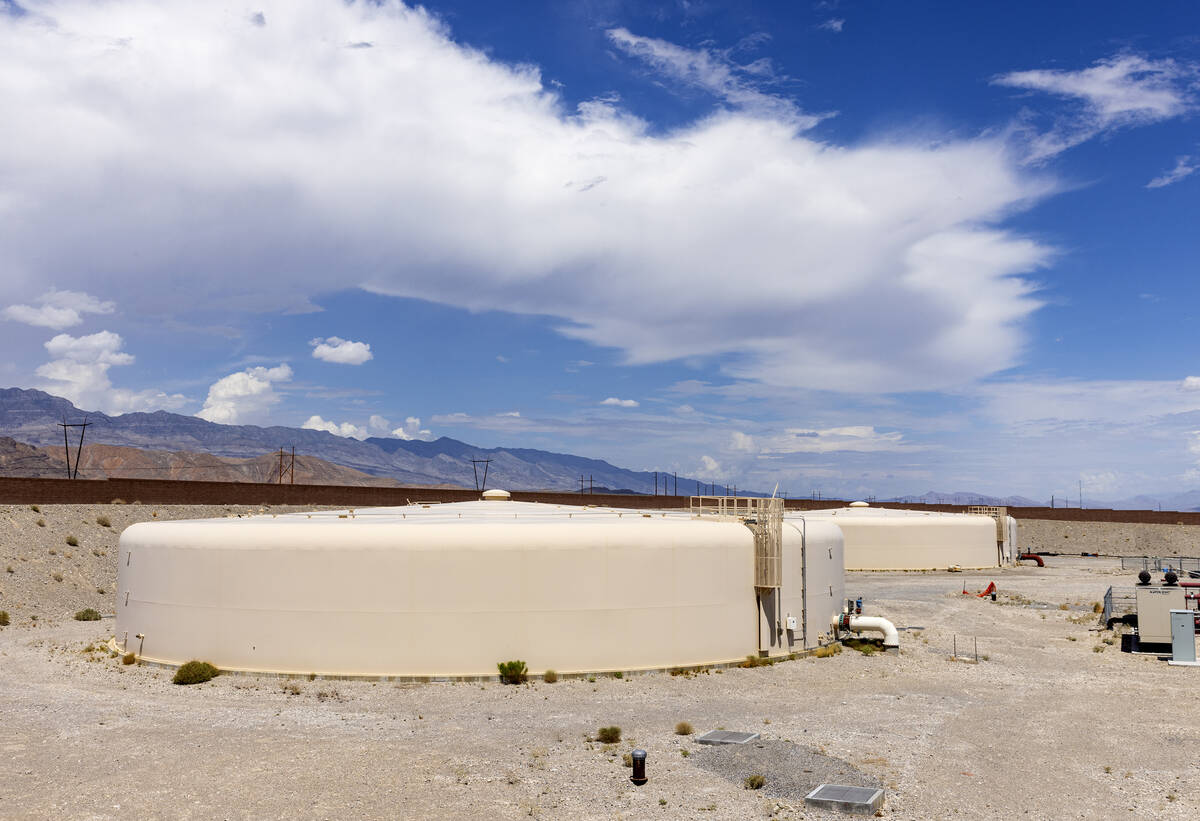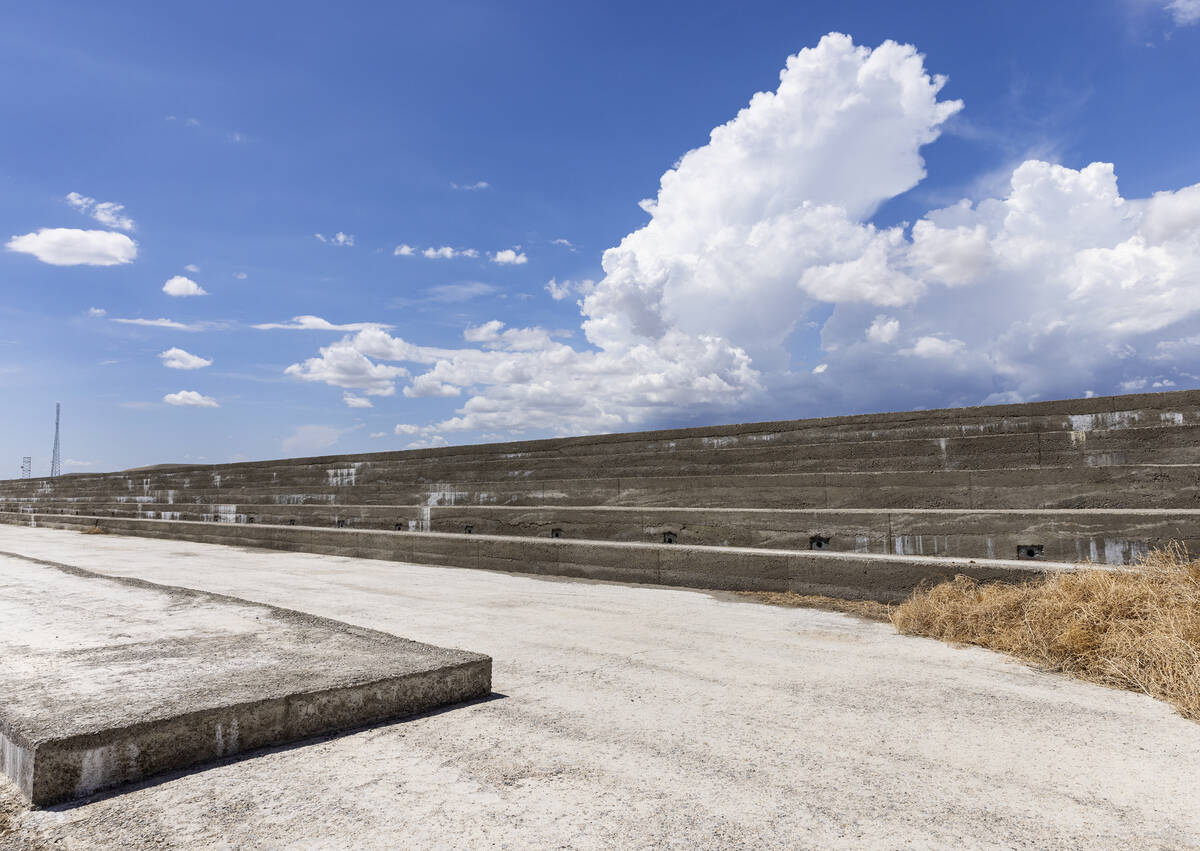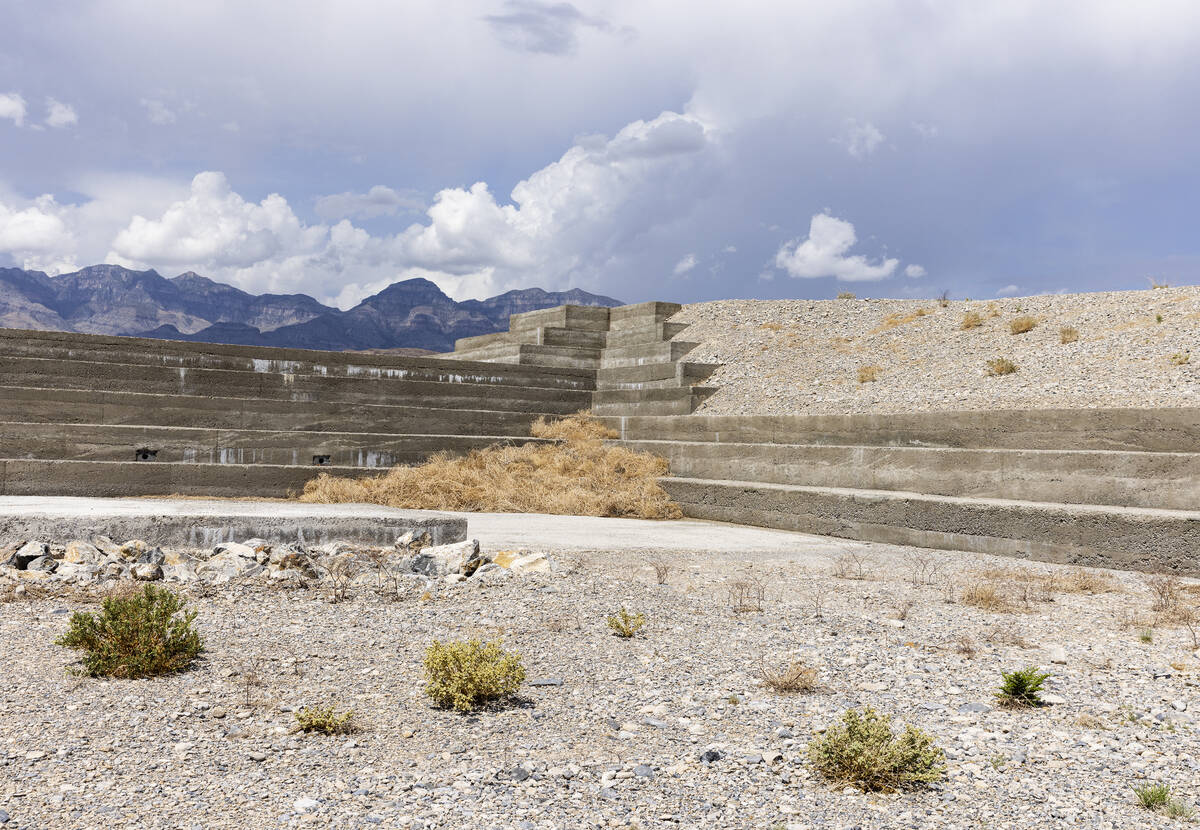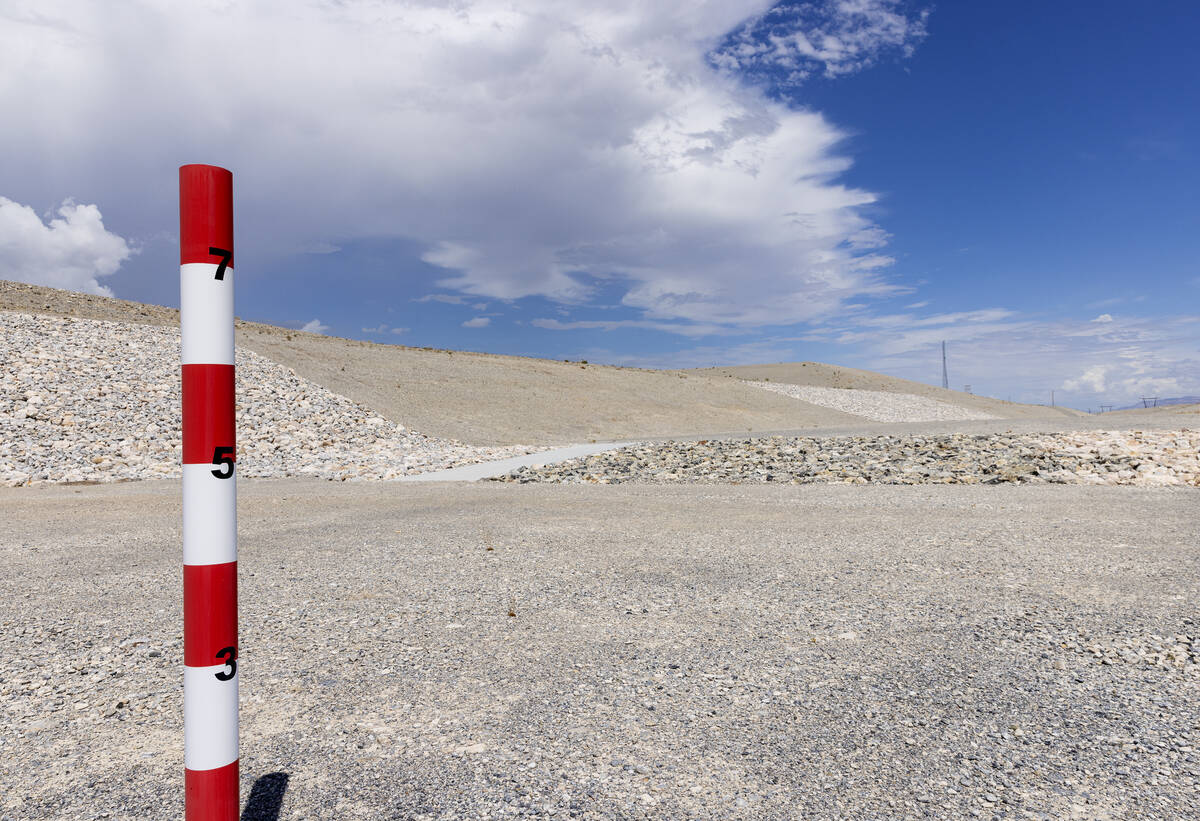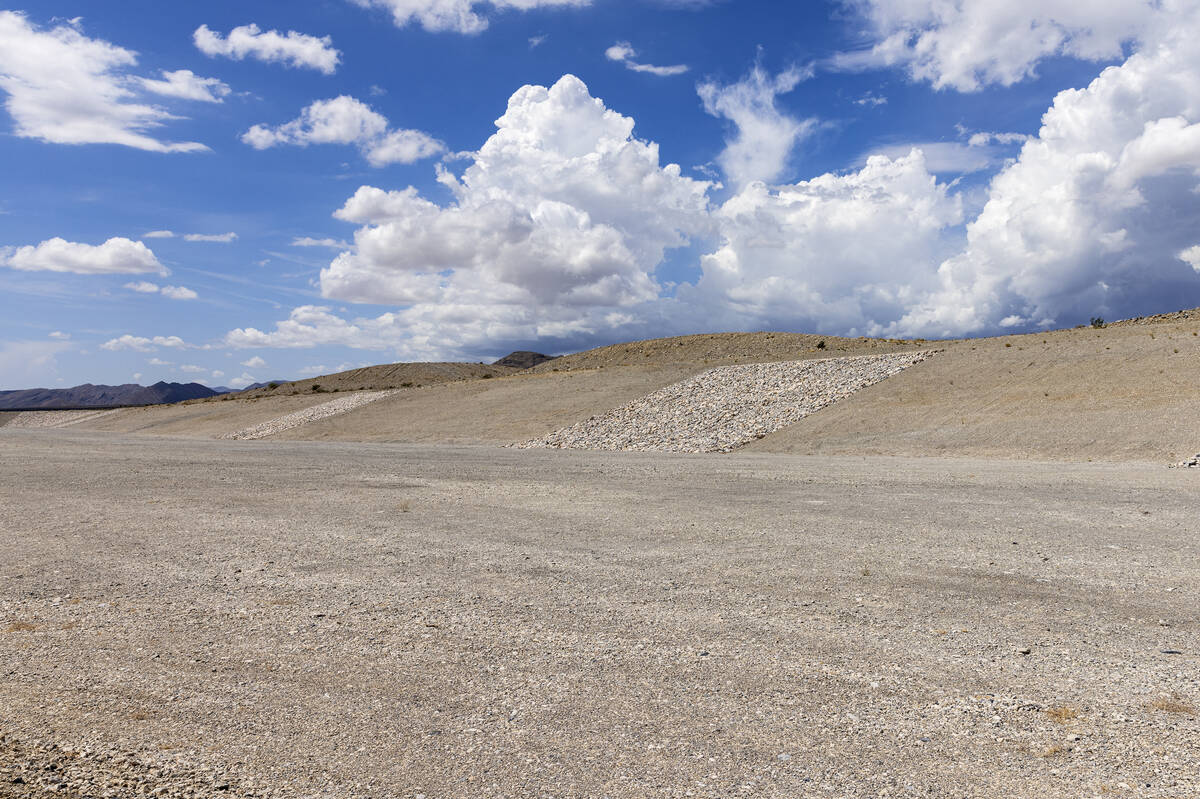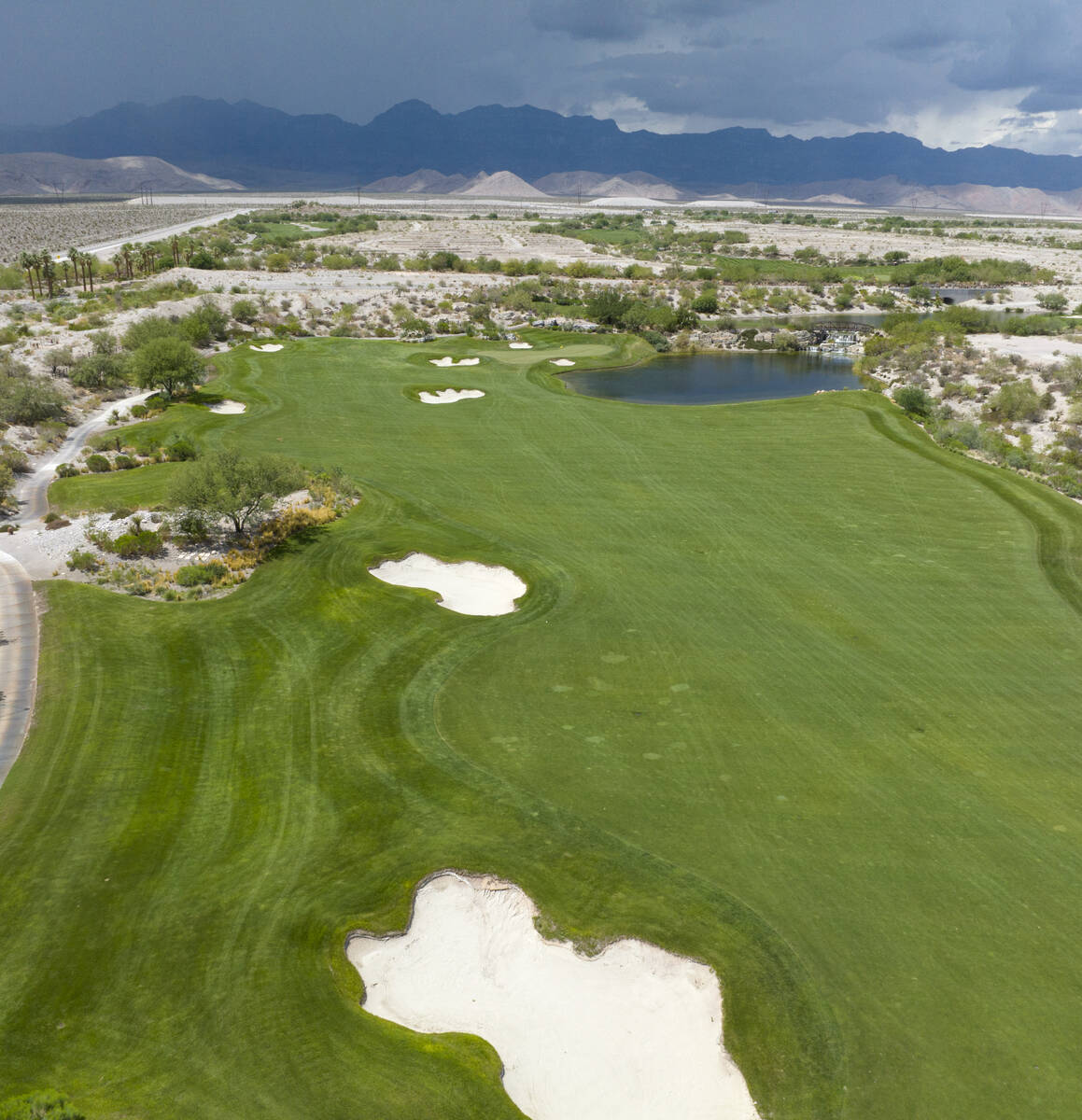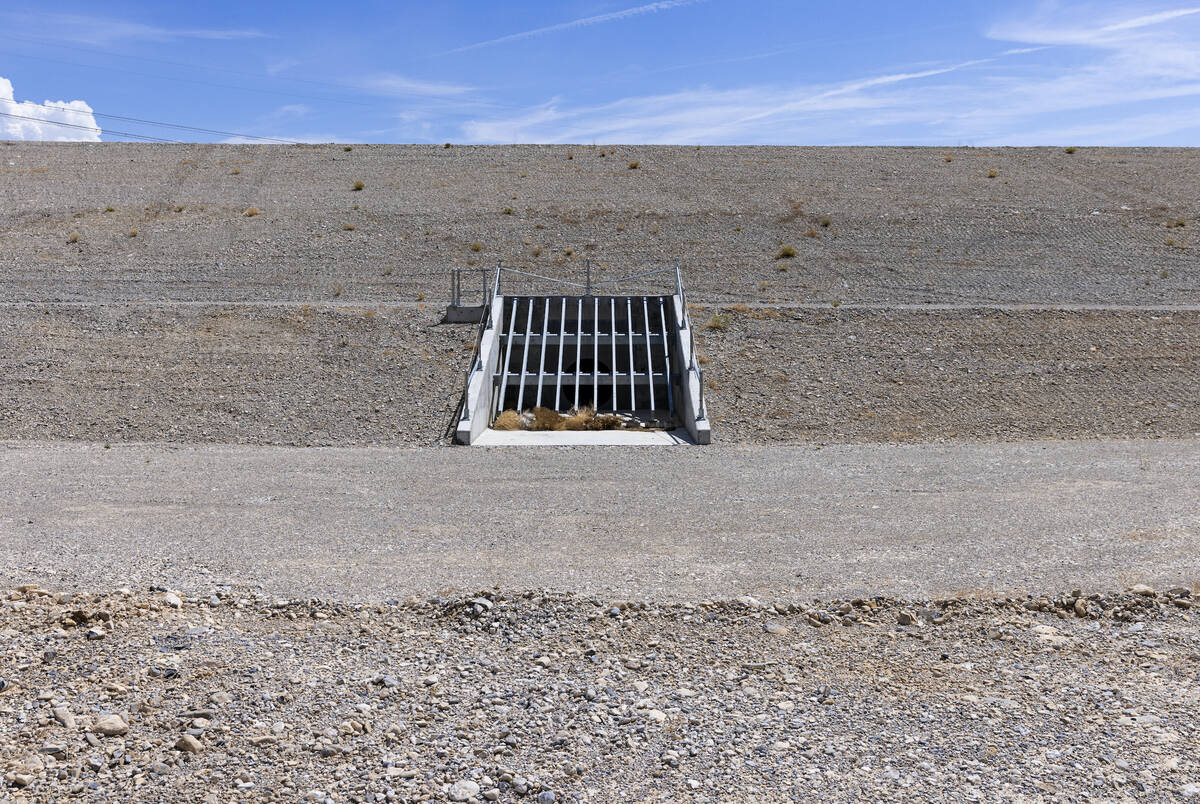‘We are ready to build’: Long-planned Coyote Springs still pushing ahead
COYOTE SPRINGS — In the summer of 2006, government leaders made their way to a remote spot outside Las Vegas to celebrate plans for a built-from-scratch city.
The late Sen. Harry Reid organized the event that hot July day, saying developers for this kind of a project would usually have federal regulators “throwing spears at them.”
“But this here truly is a lovefest,” he said.
Sixteen years later, Coyote Springs has a golf course and infrastructure but not a single house. And after bouts of litigation involving everything from water rights to accusations of fraud, embezzlement and a burly guy named Ray, Coyote Springs’ developers are still pushing ahead.
Clark County commissioners are scheduled next month to consider renewing a 575-home subdivision map for Coyote Springs. This will comprise its first residential village, said Emilia Cargill, chief operating officer and general counsel at Wingfield Nevada Group, the company behind the long-sought master-planned community.
Straddling Clark and Lincoln counties, Coyote Springs spans more than 40,000 acres and calls for nearly 160,000 homes. There’s no telling when the first houses would be built in the community roughly 60 miles north of Las Vegas.
But hundreds of millions of dollars have been invested in the project, and its developers, the Seeno brothers from the San Francisco Bay Area, are not giving up, Cargill told the Review-Journal.
“We are ready to build,” she said.
‘We will get this resolved’
It’s not uncommon for supersized real estate plans in Southern Nevada to face litigation or other hurdles, though Cargill said most of those projects “don’t get completely held up.”
But she believes Coyote Springs, which has been in the works for some two decades, will find a way forward.
“It’s going to work out,” Cargill said during an interview at Coyote Springs last month. “It’s going to be resolved, whatever the means and method of that is, I’m not exactly sure, but … we will get this resolved.”
In recent years, amid a prolonged drought in Southern Nevada, Coyote Springs has been involved with disputes surrounding water. In one lawsuit, the developers alleged the state of Nevada had “wrongfully taken” their water rights and stymied the project.
But even if water wasn’t an issue in Coyote Springs, persuading builders to buy land and develop housing tracts there may not be easy.
Las Vegas’ increasing land prices and shrinking supply of choice parcels could prompt builders to at least look at Coyote Springs. But they would probably look first to existing communities sprinkled around Southern Nevada that already have residents and commercial services, including Pahrump and Mesquite, said Andrew Smith, president of Las Vegas-based Home Builders Research.
Despite its remote location, Coyote Springs is not designed to be a small, rural outpost. It’s envisioned to have the population of a medium-sized city with a Las Vegas-style community that has golfing, housing tracts and a casino-resort.
“For that type of buyer, I just think it’s a really hard thing for a lot of people to visualize as working,” Smith said.
Cargill said Coyote Springs offers dark skies with clear views of the stars and quiet surroundings with plenty of nature. She also envisions a small general store and possibly a small urgent-care facility, and she figures other commercial services would follow once people start moving in.
Plans also call for at least the first wave of houses to occupy bigger lots than buyers in Las Vegas often get.
“That’s a reason to come to Coyote Springs,” Cargill said. “A nice big lot, beautiful stars at night and this amazing background. Who wouldn’t want to see this in the morning?”
Water fights
Located off U.S. Highway 93 at State Route 168, Coyote Springs has a 325-acre detention basin, groundwater and wastewater treatment plants, a 3-megawatt electrical substation and other infrastructure, according to court records. Cargill estimated around $300 million has been put into the community.
Cargill said that its water comes from an underground aquifer and Coyote Springs has access to 4,140 acre-feet of annual water rights. That amounts to more than 1.3 billion gallons annually.
But water issues have ended up in court.
In spring 2018, then-State Engineer Jason King wrote a letter saying he “cannot justify approval of any” subdivision maps for Coyote Springs “unless other water sources are identified for development.”
Soon after, the developers filed court papers claiming King’s decision was “arbitrary, an abuse of discretion and devoid of supporting facts and substantial evidence.”
They wrote there was sufficient water for Coyote Springs “without impacting other existing water rights and without being detrimental to the public interest.”
The state engineer agreed to withdraw his letter and process Coyote Springs’ maps as part of a settlement, but he issued an interim order in early 2019 that effectively “placed an injunction on any approval or processing” of such maps, the developers wrote in court papers.
King retired the same day he signed the interim order, records show.
In mid-2020, then-State Engineer Tim Wilson issued an order that effectively merged several basins, including Coyote Springs’, and set a limit on how much water could be pumped from the combined superbasin.
At the time, state officials said in a news release that Nevada was in a “new era of water management” and was the “driest state in the nation,” and the order would help prevent “future depletion of the basin’s water supply.”
Coyote Springs’ developers sued the state of Nevada that summer, alleging an “unconstitutional taking” of their water rights had left “no economical beneficial use” of their real estate.
Clark County District Court Judge Bita Yeager ruled this spring that the state engineer “had no authority” to create the superbasin and deemed the order “arbitrary, capricious, and therefore void.”
Cargill said the ruling was appealed to the Nevada Supreme Court and the jurists issued a temporary stay.
Nevada’s Division of Water Resources, led by State Engineer Adam Sullivan, said it was unable to provide comments for this article due to ongoing litigation.
‘Ominous and burly man’
Harvey Whittemore, a once-powerful Nevada lobbyist, and developer David Loeb acquired the land for Coyote Springs in 1998.
Loeb died in 2003. Not long after, Tom Seeno, whose family has homebuilding and casino interests, invested in Coyote Springs’ parent company Wingfield Nevada Group, court records indicate.
Pardee Homes reached a deal in 2004 to be the main residential builders for the project’s first phase. However, Southern Nevada’s frenzied real estate boom soon crashed, and construction largely ground to a halt throughout the region.
While Coyote Springs’ $40 million golf course opened in 2008, no homes were built and the developers filed a lawsuit in 2011 alleging Pardee “unilaterally” stopped construction work it had agreed to perform.
They later settled, with the developers reacquiring a reported 2,600 acres from Pardee’s former parent company.
After the economy crashed, Whittemore and the Seenos tangled in court. Business entities now controlled by brothers Tom Seeno and Albert Seeno Jr. sued Whittemore in early 2012, alleging he “confessed” to more than 20 financial transactions that were designed to “deplete” Wingfield of its assets.
Whittemore allegedly admitted, among other things, that company money was embezzled for personal meals and entertainment and that funds were diverted to furnish his family members’ homes, according to the lawsuit.
He also allegedly withdrew hundreds of thousands of dollars in cash from the company, the lawsuit claimed.
Meanwhile, Whittemore sued the Seenos, alleging Albert Seeno Jr. grew “disgruntled about his investment” in the company and started “falsely accusing” Whittemore of “embezzlement, fraud and other criminal activity.”
Seeno allegedly said he would bring down every member of Nevada’s political machine, asked whether Whittemore believed in God or went to church, and said Whittemore would eventually be disbarred and behind bars, the lawsuit claimed.
According to the complaint, the Seenos sent people to Whittemore’s home to collect personal assets “of any value,” and on one occasion, “a large, very ominous and burly man named ‘Ray’ ” demanded that Whittemore open a safe in his house.
Ray dumped the contents of the safe “into a bag and took it with him,” the complaint alleges.
Whittemore soon had legal troubles outside Coyote Springs.
In June 2012, a federal grand jury indicted him on charges that he made unlawful campaign contributions, lied to the FBI and caused false statements to be made to the Federal Election Commission.
A jury in 2013 found him guilty of funneling $133,400 in unlawful contributions to Reid’s campaign — the senator was not accused of wrongdoing — and Whittemore was given a two-year prison term, according to reports from the Review-Journal.
Whittemore, who was released from a federal halfway house in 2016, did not respond to a request for comment.
Cargill said Whittemore no longer has any ownership stake in Coyote Springs and no litigation or connection with the Seenos.
“That’s a part of the past, and our goal is to step forward,” she said.
Hitting the links
Coyote Springs’ only attraction gets no shortage of visitors. The golf course, which has a pro shop and a small bar and grill, logged more than 33,000 rounds played last year, its most ever, and is on pace to exceed or match that this year, said Director of Operations Curt Russell.
According to Cargill, the course operates at an annual deficit of about $1 million. Despite that, Cargill said they keep it open because if they let the greens die, they’d have to start over on the pricey project.
She also said the developers need to keep using the water that feeds the course. Nevada’s state engineer has the ability to take someone’s water rights if they don’t use them, according to Cargill.
Plus, the golf course is the amenity that “helps sell Coyote Springs,” she said. People could walk around its trails at night, and the developers plan to sell homes along the course.
“We want to keep it alive,” she said.
Contact Eli Segall at esegall@reviewjournal.com or 702-383-0342. Follow @eli_segall on Twitter.



